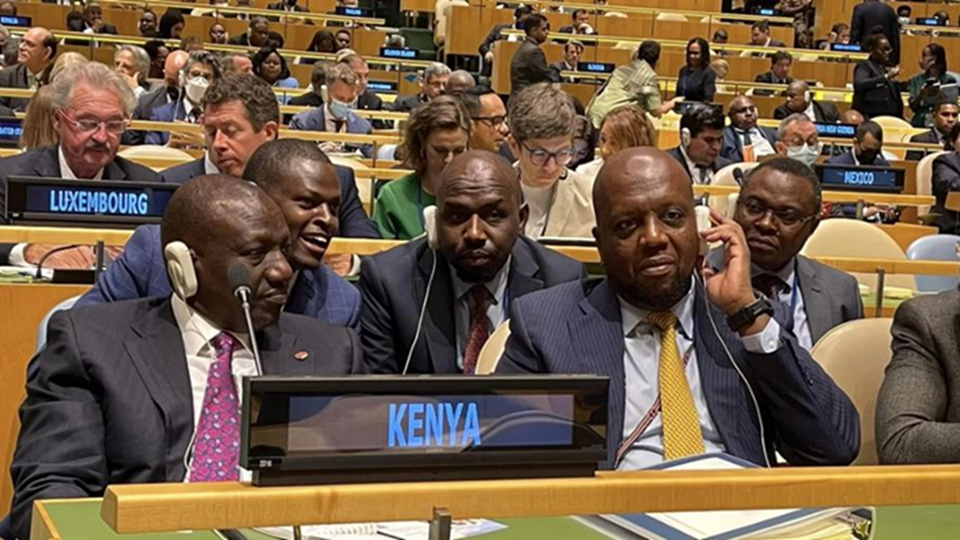Government Faces Scrutiny Over Excessive Travel Allowances Amid Economic Strain
The government is under fire following revelations of extravagant spending on travel allowances for public servants, despite the country grappling with a strained economy and a high risk of debt distress. The hefty per diems, particularly for international travel, have sparked widespread criticism as the nation struggles to manage its fiscal challenges.
Recent data has exposed the scale of government expenditure on travel allowances, with civil servants receiving substantial daily subsistence allowances (DSA) for international trips. For instance, public servants traveling to the United States are entitled to approximately $513 (Ksh66,317) per person per day. This figure has raised eyebrows, especially as Kenya’s economy faces mounting pressure from rising debt and limited fiscal space.
In the fiscal year 2022/23, travel-related expenditures reached a staggering Ksh19.6 billion, with Ksh6.2 billion allocated specifically to DSAs. This accounts for roughly 32% of the total travel budget, highlighting the significant portion of public funds directed toward allowances rather than other critical sectors. Overall, government spending on allowances consumed 14% of total expenditures in the same period, with 60% of wage expenditures going to salaries, 30% to remunerative allowances, and 10% to facilitative allowances.
Kenya’s fiscal situation is precarious, with the country classified as being at high risk of debt distress. The uncontrolled spending on travel allowances comes at a time when the government is struggling to balance its budget and meet debt obligations. Critics argue that such lavish expenditures are unsustainable, diverting resources from essential services like healthcare, education, and infrastructure development.
The lack of standardization and oversight in the allocation of allowances has further exacerbated the issue. Reports indicate that the absence of strict adherence to guidelines set by the Salaries and Remuneration Commission (SRC) has led to widespread misuse of public funds. This has prompted calls for urgent reforms to curb wasteful spending and align government expenditure with the country’s economic realities.
A recent advisory from the World Bank has called for a comprehensive review of Kenya’s allowance system to address inefficiencies and curb misuse. The global lender highlighted that facilitative allowances, intended to support specific job functions, are often used to supplement basic pay rather than reward performance. This practice undermines productivity, as public servants are incentivized to prioritize travel opportunities over their regular duties, leading to frequent absences from duty stations.
The World Bank’s report also pointed out that the overuse of DSAs contributes to inefficiencies in the public sector wage bill. Audit findings from the Office of the Auditor General have corroborated these concerns, noting that the current per diem practices fail to meet value-for-money standards. The proliferation of committees, meetings, and delays in administrative processes has been linked to the pursuit of allowances, further hampering government efficiency.
The revelations have sparked a public outcry, with many Kenyans demanding greater accountability and transparency in government spending. Analysts argue that the government must prioritize fiscal discipline to address the looming debt crisis and redirect resources toward critical development priorities. Proposed reforms include stricter oversight of travel-related expenditures, adherence to SRC guidelines, and a shift toward performance-based allowances.
The World Bank has recommended standardizing allowance rates and implementing controls to ensure that public funds are used efficiently. Such measures could help reduce the fiscal burden and restore public trust in the government’s financial management. Additionally, there is a growing consensus that Kenya must align its spending with its development goals to avoid further economic strain.
As public pressure mounts, all eyes are on the Kenyan government to address the controversy. Policymakers face the challenge of balancing the need for public servants to perform essential duties, including international engagements, with the imperative to manage public finances responsibly. The outcome of this debate could have significant implications for Kenya’s fiscal policy and its efforts to navigate the current economic challenges.
For now, the issue of hefty travel allowances remains a contentious topic, underscoring the broader struggle to achieve fiscal sustainability in a country facing mounting debt and economic uncertainty. As Kenya grapples with these challenges, the call for prudent financial management has never been louder.


